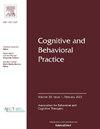新一代迷幻辅助心理治疗:将MDMA与创伤性认知行为疗法结合治疗创伤后应激障碍的例子
IF 2.9
3区 心理学
Q1 PSYCHOLOGY, CLINICAL
引用次数: 0
摘要
创伤后应激障碍(PTSD)是一种可治疗的疾病,有效的心理疗法和药物为患者提供了一系列治疗选择。以创伤为重点的心理治疗,如长时间暴露和认知加工治疗,建议作为一线方法。然而,即使是最好的治疗方法也不是对每个人都有效,这表明需要提高治疗效果。虽然关于如何实现这一目标的证据仍然有限且不确定,但探索新方法的兴趣越来越大。在这篇评论中,我们关注迷幻物质,特别是MDMA(3,4-亚甲基二氧基甲基苯丙胺),如何在使用MDMA(3,4-亚甲基二氧基甲基苯丙胺)辅助认知行为疗法(CBT)治疗创伤后应激障碍的过程中提高PTSD心理健康治疗效果。最近的3期随机对照试验证明了mdma辅助心理治疗对创伤后应激障碍的益处,具有高反应和缓解率。然而,由于其时间密集的性质和独特的治疗方案,在实施这种方法时存在挑战。将致幻剂与已建立的以创伤为中心的心理疗法相结合,为改善治疗结果提供了一条有趣的途径。迷幻药可能通过增强联系和洞察力,促进情绪处理和适应性应对机制而起作用。通过将致幻剂纳入现有的认知行为框架,如长时间暴露和认知加工治疗,有可能实现协同效应并提高治疗的效率。总之,证据支持迷幻辅助疗法作为治疗PTSD的可行选择,尤其是MDMA。将迷幻药与认知行为治疗相结合,有望产生协同治疗效果,提高效率,并在现实世界中实施。未来的研究应该探索迷幻药与循证治疗的各种组合,以优化PTSD和其他精神健康障碍的护理,并为患者提供额外的治疗选择。本文章由计算机程序翻译,如有差异,请以英文原文为准。
A New Generation of Psychedelic-Assisted Psychotherapy: The Example of Combining MDMA With Trauma-Focused Cognitive-Behavioral Therapy for Posttraumatic Stress Disorder
Posttraumatic Stress Disorder (PTSD) is a treatable condition, with effective psychotherapies and medications offering a range of treatment options for patients. Trauma-focused psychotherapies, such as prolonged exposure and cognitive processing therapy, are recommended as first-line approaches. However, even the best treatments do not work well enough for everyone, indicating a need for enhanced treatment outcomes. While the evidence on how to achieve this remains limited and inconclusive, there is growing interest in exploring novel approaches. In this commentary we focus on how psychedelic substances, particularly MDMA (3,4-methylenedioxymethamphetamine), hold promise for enhancing PTSD mental health treatment outcomes, using MDMA (3,4-methylenedioxymethamphetamine)-assisted cognitive-behavioral therapy (CBT) for PTSD. Recent Phase 3 randomized controlled trials have demonstrated benefits of MDMA-assisted psychotherapy for PTSD, with high response and remission rates. However, challenges exist in implementing this approach due to its time-intensive nature and unique therapy protocol. Combining psychedelics with established trauma-focused psychotherapies presents an intriguing avenue for improving treatment outcomes. Psychedelics may work by enhancing connections and insights, facilitating emotional processing and adaptive coping mechanisms. By incorporating psychedelics into existing cognitive behavioral frameworks, such as prolonged exposure and cognitive processing therapy, it may be possible to achieve synergistic effects and enhance the efficiency of therapy delivery. In conclusion, the evidence supports psychedelic-assisted therapy as a viable option for PTSD treatment, particularly MDMA. Combining psychedelics with CBT holds promise for synergistic treatment effects, improved efficiency, and real-world implementation. Future research should explore various combinations of psychedelics with evidence-based treatments to optimize care for PTSD and other mental health disorders and provide patients with additional therapeutic options.
求助全文
通过发布文献求助,成功后即可免费获取论文全文。
去求助
来源期刊

Cognitive and Behavioral Practice
PSYCHOLOGY, CLINICAL-
CiteScore
4.80
自引率
3.40%
发文量
118
审稿时长
84 days
期刊介绍:
Cognitive and Behavioral Practice is a quarterly international journal that serves an enduring resource for empirically informed methods of clinical practice. Its mission is to bridge the gap between published research and the actual clinical practice of cognitive behavior therapy. Cognitive and Behavioral Practice publishes clinically rich accounts of innovative assessment and diagnostic and therapeutic procedures that are clearly grounded in empirical research. A focus on application and implementation of procedures is maintained.
 求助内容:
求助内容: 应助结果提醒方式:
应助结果提醒方式:


